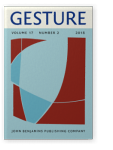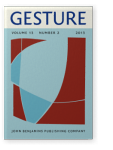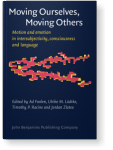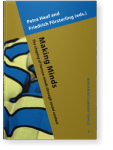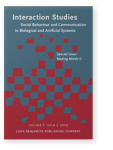Jeremy I.M. Carpendale
List of John Benjamins publications for which Jeremy I.M. Carpendale plays a role.
2018 From touching to communicating: Forms of index finger use in the development of pointing Gesture 17:2, pp. 245–267 | Article
Infants can extend their index fingers soon after birth, yet pointing gestures do not emerge until about 10 to 12 months. In the present study, we draw on the process-relational view, according to which pointing develops as infants learn how others respond to their initially non-communicative… read more
2013 Developing gestures for no and yes: Head shaking and nodding in infancy Gesture 13:2, pp. 193–209 | Article
Yes and no, or acceptance and refusal, are widespread communicative skills that are common across cultures. Although nodding and shaking the head are common ways to express these seemingly simple responses, these gestures develop later than others such as pointing. We analyzed diary observations… read more
2012 Reaching, requesting and reflecting: From interpersonal engagement to thinking Moving Ourselves, Moving Others: Motion and emotion in intersubjectivity, consciousness and language, Foolen, Ad, Ulrike M. Lüdtke, Timothy P. Racine and Jordan Zlatev (eds.), pp. 243–260 | Article
From many contemporary theoretical perspectives, the body and emotions play little role in the development of thinking and consciousness. If emotions are given any part it is in biasing thinking, rather then contributing to cognitive development. This volume, in contrast, presents alternatives to… read more
2007 Constructing perspectives in the social making of minds Making Minds: The shaping of human minds through social context, Hauf, Petra and Friedrich Försterling (eds.), pp. 163–178 | Article
2005 Constructing perspectives in the social making of minds Making Minds II, Hauf, Petra (ed.), pp. 341–358 | Article
The ability to take others’ perspectives on the self has important psychological implications. Yet the logically and developmentally prior question is how children develop the capacity to take others’ perspectives. We discuss the development of joint attention in infancy as a rudimentary form of… read more
